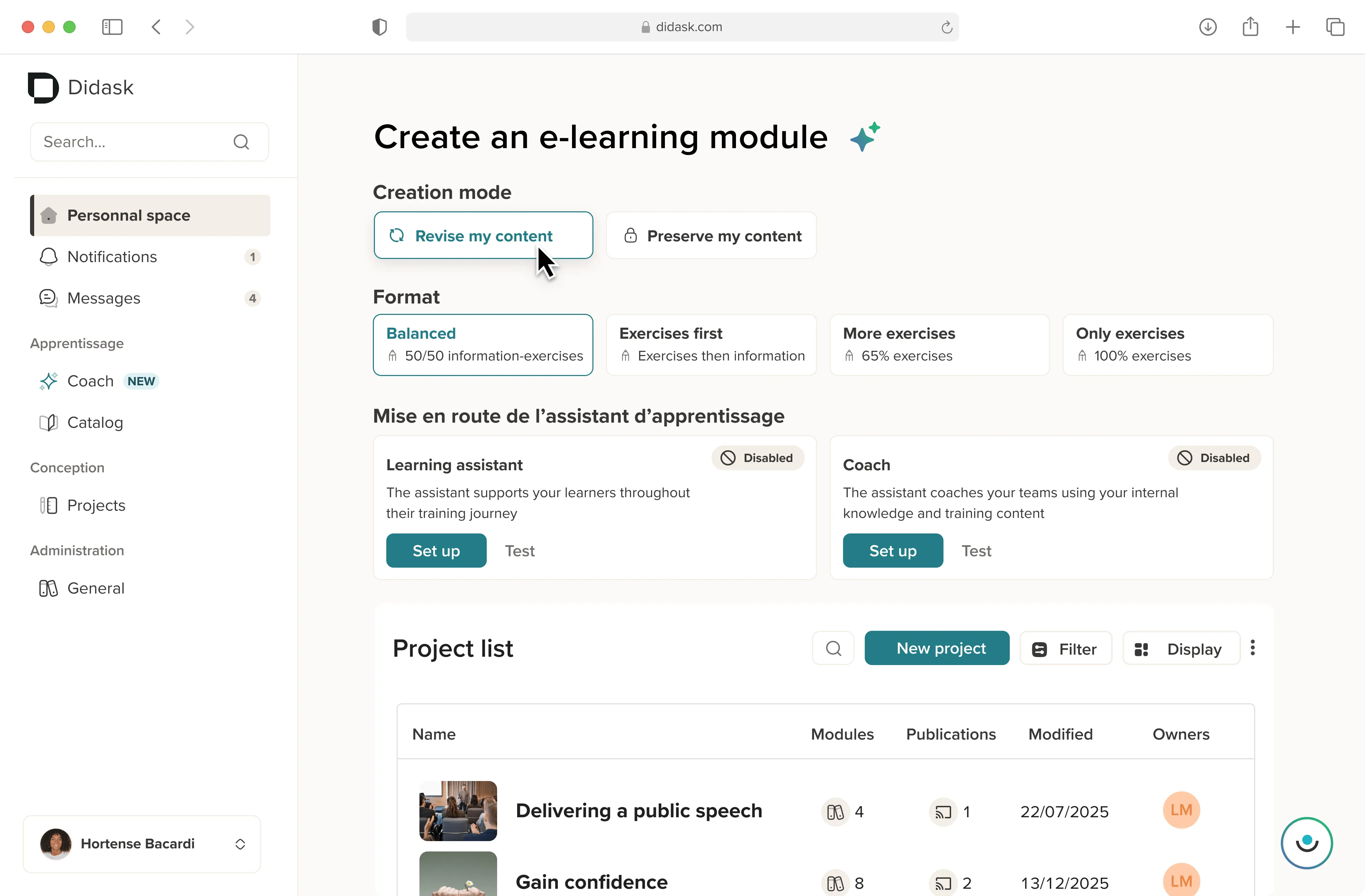The crucial importance of developing leadership in business
Why leadership is so essential in the workplace
Leadership is a fundamental pillar in the success and sustainability of a company. It goes well beyond simply managing operations as it shapes your organization's strategy, culture, work environment, and innovation capacity. Indeed, effective leadership is essential for:
- Motivate and engage your employees: Competent and inspiring leaders play a key role in motivating and engaging teams. They create an environment where employees feel valued and involved, which is a major factor in increased productivity and better job satisfaction.
- Navigating complexity: In an ever-changing business world, leaders need to be able to quickly understand issues, anticipate challenges, and make informed strategic decisions to keep the business on track for success. A difficult and complex task.
- Encouraging innovation: Visionary leadership is critical to driving innovation and experimentation. It's about encouraging a culture where experimentation and risk taking are valued, which is essential to remain competitive, and even more so in today's economy.
The need to evolve and train in leadership
Today's world of work, with its unique challenges and opportunities, requires leaders not only to master traditional management skills, but also to continuously develop new capabilities. And you can't invent it, you have to work on it and learn it. Continuing leadership training is therefore essential for:
- Adapting to new working models: The evolution of working methods, especially with the increase in teleworking, requires remote team management skills. Leaders need to know how to maintain cohesion, corporate culture, and operational efficiency, even at a distance.
- Managing diversity and inclusion: In an increasingly globalized world, intercultural communication and diversity management skills are crucial. Your leaders need to understand and value diversity within their teams to create an inclusive and respectful work environment.
- Responding to changing employee expectations: New generations of workers have different expectations about management, career development, and work/life balance. Leaders need to be flexible and responsive to these expectations to attract but also retain talent.
LThe limits of the traditional approach
The traditional approach to leadership training, often rigid and theoretical, comes up against significant limitations, which you have probably already observed. It does not always manage to respond effectively to the diversity of leadership styles and the individual needs of each manager. These standardized courses, delivered in classrooms or via online modules, often lack interactivity and practical relevance. It addresses big truths and opens doors without giving managers the keys to action. In addition, they do not always offer personalized assessment or follow-up, making it difficult to measure the real impact on leadership skills. The major challenge in leadership training therefore now lies in the ability to combine theory and practice, while adapting learning to specific contexts and the individual needs of leaders.
The cKey Leadership Skills to be developed in 2024
Contrary to some popular beliefs that are still sometimes in fashion, leadership is not about personality traits. This can certainly have an influence, but leadership is mainly about a set of skills. Before we dive into Didask's innovative approach, it is essential to identify the key competencies that all leadership training should develop.
- Knowledge of yourself and others: An effective leader should have a thorough understanding of their own strengths, weaknesses, and motivations, as well as those of their team. This understanding promotes better group dynamics and informed decision making.
- Emotional intelligence: The ability to manage your own emotions and understand the emotions of others is fundamental to effective communication and sound decision making. In particular, this relates to the concept of empathy.
- The ability to influence: A leader should be able to persuade, negotiate, and inspire his team, while avoiding manipulation. This skill is crucial in guiding the team towards achieving business goals.
- Vision and foresight: Developing a clear strategic vision and anticipating future changes and trends are essential for effectively leading an organization.
- Authenticity and humility: A leader should promote trust and respect, while remaining open to learning and constructive feedback. The era of the all-knowing manager is over, thankfully.
- and of course assertiveness: Essential in modern leadership, assertiveness refers to a manager's ability to communicate thoughts, needs, and boundaries in a clear, direct, and respectful manner. It is an essential interpersonal skill that allows the manager to express himself effectively while respecting the opinions and needs of others, and which today tends to replace the pure and hard “old-fashioned” notion of authority.
The Didask approach: a big step forward in leadership training
The aLearning by trial and error: the key to effectiveness
The trial-and-error learning approach of the Didask LMS platform is a major advance. It allows managers to immerse themselves in realistic simulations, where they can apply and test their skills in real time. This method promotes better Assimilation of leadership concepts, thus offering a thorough understanding of their practical applications. For example, in a crisis management simulation, a leader may have to navigate between different personalities within the team, using emotional intelligence and assertiveness to maintain balance and motivation.
To go further on trial and error, I invite you to read our article Learning by trial and error: unleash the potential of feedback
A pSmart personalization with adaptive learning
The core of the learning experience of the Didask platform is based in particular on adaptive learning. This technology adapts the content of the training to the individual responses and performances of each manager, ensuring a tailored learning experience. For example, a leader who needs to strengthen his ability to influence could be offered scenarios where he must persuade his team to adopt a new strategy. Another leader who should strengthen his sense of foresight would be directed to modules related to this problem. Everyone is thus in a position to practice and refine the key skills they need the most, and saves precious time on those they already master.Encouraging many fantasies, to be effective, adaptive learning, to be effective, must focus only on personalization criteria useful for skills development, I talk about it in this article What is the difference between good and bad Adaptive Learning?
The fContinuous feedback and impact measurement
The Feedback Continuous is another essential component of Didask. After each simulation, managers receive detailed feedback, allowing them to understand their strengths and areas for improvement. This approach is complemented by advanced analysis tools that assess the impact of training on the development of leadership skills, offering concrete ways for continuous improvement.
Conclusion: Reinvent leadership training in your workplace
It's obvious that effective leadership development is crucial to business success, requiring an approach that goes beyond disappointing traditional methods. To give you the means, Didask meets this need by offering a revolutionary platform that integrates learning by trial and error, adaptive learning and continuous feedback. This method allows you to really develop key skills such as self-awareness, emotional intelligence, and assertiveness, essential for modern leaders. By adopting Didask, businesses can transform their leadership practices, making them more suited to the dynamic and diverse challenges of today's professional world. Because yes, we can now train online on such a complex issue:)








.webp)

.png)